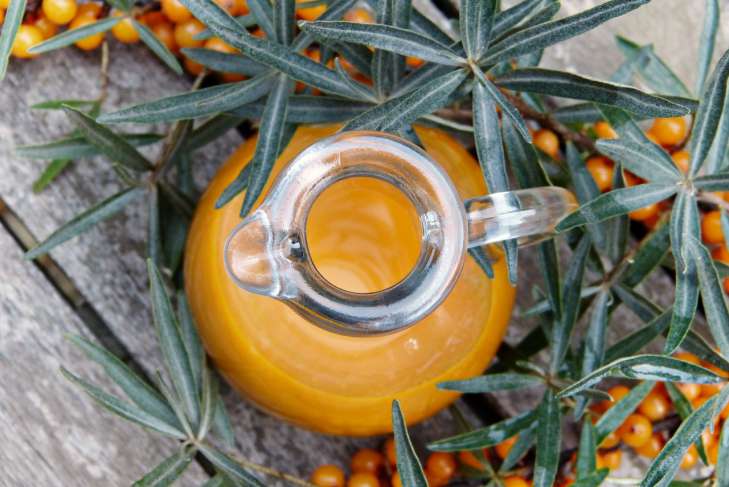Sea Buckthorn: Health Benefits – Important to Know
Orange or red sea buckthorn berries have dense pulp, covered with thin skin, with a specific taste: it is rather sour-bitter and leaves a long aftertaste.
Why sea buckthorn is useful
One of the most famous properties of sea buckthorn is stimulating the immune system.
This is facilitated by a high concentration of phytoncides and vitamin C.
Sea buckthorn berries retain vitamin C even after freezing. And just a couple of spoons of sea buckthorn oil will satisfy the body’s daily need for vitamin E.
Fresh fruits and sea buckthorn juice are recommended for low acidity of gastric juice and atonic constipation.

Sea buckthorn oil is a fairly strong laxative, so it relieves even severe or chronic forms of constipation.
The oil can be taken orally and as microenemas.
Sea buckthorn can lower blood pressure. Therefore, hypotensive patients should use the fruits with caution.
Also considered contraindications are allergies, exacerbation of liver and gallbladder diseases, gastritis with high acidity, and urolithiasis.
In what form is sea buckthorn useful
Of course, eating sea buckthorn fresh is most beneficial, but the berries mashed with sugar or frozen retain their beneficial properties to the maximum.
Taste lovers will also enjoy preserves, jams, compotes, fruit drinks, and herbal teas with sea buckthorn berries.
Is it possible to pour boiling water over sea buckthorn
Ascorbic acid decomposes at temperatures above 100 °C, so the fruits can be brewed with boiling water.
In preparing sea buckthorn tea, you can use both whole and crushed berries.
Previously, we talked about antioxidants.


